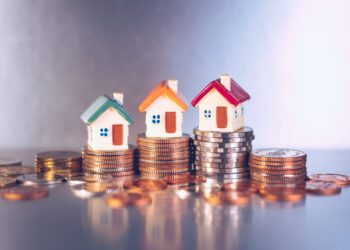This is one of a series of articles written by Young Global Leaders with action-oriented ideas to improve the state of the world by 2030.
Sustainable finance could become the most material innovation in capitalism since the revival of the US economy after the Great Depression of 1929. It is growing quickly, in terms of interest, adoption, and assets. But the sprouting of sustainable investments, focused on allocating capital with the intention to address social and environmental challenges, can only reach its true potential if they become intelligible for retail investors.
With approximately 30% of the market trading volume attributable to private investor orders (around 50% in the US), retail investing has the power to move the needle. Yet a recent CFA report showed 69% of retail investors were interested in sustainable investment, but only 10% have actually invested their money in this manner.
Why the lack of interest in sustainable investment?
There are several reasons for this material discrepancy. The first relates to lack of simplicity. While for institutional investors the more data the better – and they possess the strengths to navigate large pools of complex information streams – for retail investors, the more simplified and user-friendly data, the better. Yet, there is nothing simple about sustainable investments today, with the industry marked by complexity, confusion in terminology, and lack of standardization in terms of practices.
The United Nations’ 17 Sustainable Development Goals (UN SDGs) and its 169 targets are simply hard for retail investors to understand. It is also difficult for every company to contribute to every goal based on their different sectors and regions of operation. And while retail investors aim for personalized portfolios, sustainable products are often an aggregate of environmental, social and governance (ESG) scores, hiding away the particularities and impacts of each company from the retail investor.
A pool of ongoing initiatives to “organize” the sustainable finance market are underway, ranging from the IFRS Foundation‘s intent to develop international sustainability reporting standards; the work by the European Union around the Non-Financial Reporting Directive (NFRD)/Corporate Sustainability Reporting Directive (CSRD), the Sustainable Finance Disclosure Regulation (SFDR) and the taxonomy, which aim at generating more and better disclosures of sustainable practices and activities; and the British government’s work, supported by the British Standards Institution and industry players, to develop a prescriptive standard for “sustainable” and “responsible” investment funds.
And while the lack of correlation between ESG ratings from traditional providers is still a major issue, additional resources are being allocated into this space and new fintech players are designing new tools powered by smarter algorithms and machine learning, which will likely take ESG data to a new level of reliability in the coming years.
But for retail investors to openly embrace sustainable investments, the market should move towards a new simple, consistent, and personalized sustainability approach.
What’s the solution?
Different people care about different things. To reach its true potential, sustainable investing needs to personalize its approach for retail investors, focusing on the topics they each most care about. In traditional investing, retail investors typically look at a subset of price to earnings, dividend yield, leverage, and/or expected growth measures based on if they have value, growth, or income preferences. Similarly, packaged food consumers are provided with standardised, consistent tables including calories, fat, carbohydrates, protein, and salt.
Typically not all of these are considered by each consumer, but one or more are considered when comparing two similar food items. For example, a body builder might focus on protein, a person on a diet on calories and fat, and a person with heart disease on cholesterol and sodium.
A similar approach should be adopted in sustainable investment. Retail investors can focus on 5-10 standardised, understandable metrics which their investment capital impact.
The requirements for this to occur are interestingly not particularly complicated or taxing. The key change is just that all companies, private and public, report the same 5-10 pieces of data. In July 2021, more than 130 countries agreed to support an OECD tax reform framework to impose a global corporate minimum tax on large multinational corporations’ overseas profits. This could follow the same process, with countries together just requiring companies operating in their territories to report these data points in easily understandable tables. Like many countries, including China, the EU, and the US, have already done this with the simple, regulatation-required dietary tables on packaged food.
But it would allow the easy development of a new range of credible sustainable investments that appeal to a much wider range of retail investors that utilise this simple, consistent, and personalized data, creating even more incentives for businesses, both public and private, to improve their performance across all these core sustainable investing aspects.
Mass “personalized” advisory implementations, covering bonds and equities, could combine each individual investor’s preferences across all 5-10 standardised, simplified measures.
Applying no weight in the personalized rating for measures indicated by the individual as a low preference/priority, 1x weight for medium priorities, and 2x weight for high priorities suggests a company rated as neutral by current aggregated ESG ratings at 52nd percentile of all companies would, in reality, be attractive for person 1 (76th percentile of all companies) and unattractive for person 2 (only 29th percentile). This could also be applied to government debt.
This data could also help determine the passive, mutual, and private equity funds retail investors allocate their money towards. While certain thematic funds currently exist, provision of “Key Sustainability Components” tables by all companies would provide a significant improvement in the simplicity, consistency, and true personalization of the investment instruments available for retail investors.
For example, funds could consider to include only publically listed companies in the top 25% of each sector on a particular measure. Similarly, the provision of these tables by private companies would provide a significant improvement in the range of available private equity thematic funds for (larger) retail investors. Funds could specifically be measured by a) investments’ comparable ratings and/or b) investments’ rating improvement during ownership.
What does the future hold?
If sustainable investment products cater to retail investors’ specific personal interests, significantly more money in aggregate will enter the space. And businesses will be further encouraged to improve on all the ESG aspects people care about, and start putting their money behind improving them. This would be a significant improvement on the typical situation today, which is that most companies ignore ESG improvements in their core day-to-day businesses due to the lack of real retail investor participation in sustainable investment.
By Simon Smiles & Rodrigo Tavares
About the authors: Simon Smiles is Former Group Managing Director, UBS Wealth Management; Rodrigo Tavares is Founder and President, Granito Group.
This article originally appeared at https://www.weforum.org/agenda/2021/08/how-personalizing-sustainable-investments-shape-finance/ and is republished with permission.












